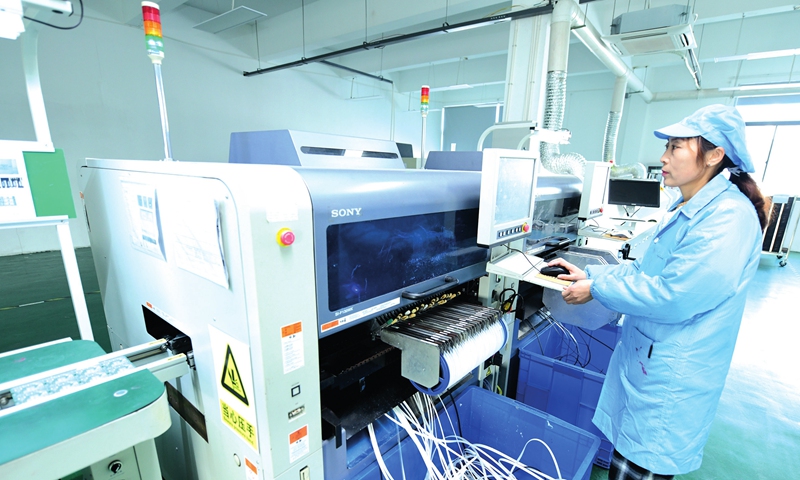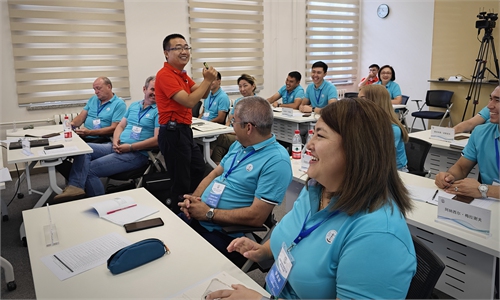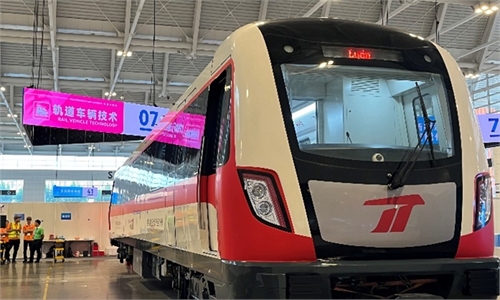
A woman works at an electronics facility in Haian, East China's Jiangsu Province on Monday where orders for LED smart drivers are piling up. The company has put more effort into research and development in recent years, aiming to build itself into a premium LED driver manufacturer. Photo: cnsphoto
China has vowed to encourage the research and development (R&D) sector to hire more young talent, defined as those under the age of 40, in key projects and keep this group at more than 50 percent of the total, in a bid to strengthen the country's general talent reserves and R&D levels.
The General Office of the CPC Central Committee and the State Council on Sunday co-issued a series of measures to enhance the development and employment of young talent, as well as effective practical mechanism.
The document said that the proportion of core staff under the age of 40 in research projects should be at least 50 percent, and it should steadily expand the support range of the National Natural Science Foundation of China targeting projects with young talent to more than 45 percent.
The age limit of national key research project applications will be relaxed to 40, and there will be no restrictions related to professional rank or education background. The document also encouraged technological and innovation centers to set up research projects led by researchers under the age of 40, and keep this portion at no more than 60 percent.
The document encourages more international cooperation. Young talent will be supported to join and study in high-level international institutes, as well as host multilateral research conferences, to increase their international influence.
In order to secure the implementation of the document, China's Ministry of Science and Technology (MOST) urged employers in the science and technology sectors to fully practice these measures and conduct relevant assessments and subsequent research.
Young experts have become China's majority in technology research and innovative development. From 2012 to 2021, the number of research and development (R&D) personnel increased from 4.17 million to 8.58 million with an annual average growth rate of 7.67 percent.
The number of PhD graduates passed 450,000, and the annual average growth rate hit 4.73 percent, according to data from the MOST.
Over the past 10 years, China's sci-tech strength has grown along with the development of the economy, becoming a driving force for Chinese modernization, Wu Zhaohui, vice minister of the MOST, told a press conference during the 2023 Zhongguancun Forum held in May this year in Beijing.
China's R&D investment tripled from 1 trillion yuan ($140 billion) in 2012 to 3 trillion yuan in 2022, and China maintained its No.1 global position for many years in terms of the quantity and quality of its scientific research personnel.
In the past decade, China made major scientific research achievements, including the development of quantum information, nuclear power technology and artificial intelligence (AI) technology.
The MOST said the average age of R&D teams of multiple important strategic tasks including the BeiDou Navigation Satellite System, and the Martian and lunar detection projects is about 30. In addition, young experts have become the major force in some emerging industries such as AI and information communication.
Global Times



